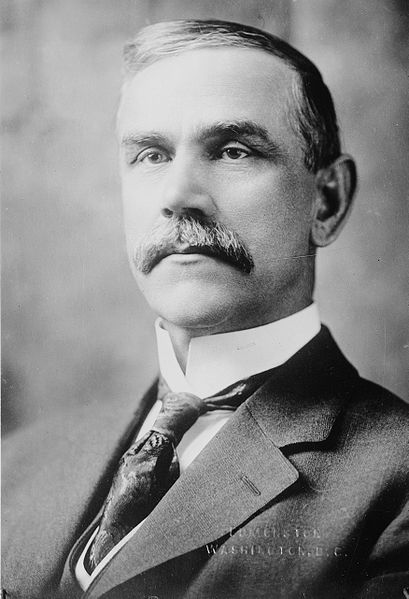-
•
•
26 responses
Six months ago, at the October 2012 General Conference, President Monson announced the missionary age change. Here is his report on how things are going, delivered earlier this month: The response of our young people has been remarkable and inspiring. As of April 4 — two days ago — we have 65,634 full-time missionaries serving, with over 20,000 more who have received their calls but who have not yet entered a missionary training center and over 6,000 more in the interview process with their bishops and stake presidents. It has been necessary for us to create 58 new missions to… Read More
-
•
•
38 responses
I’ve just posted my article, ‘The Divine Institution of Marriage’: An Overview of LDS Involvement in the Proposition 8 Campaign, to SSRN. The article is largely descriptive, setting out in some detail the church’s actions and statements relating to Proposition 8. It chronicles a significant amount of factual material that has not been discussed at all in the existing legal literature. It may be especially relevant to people who have an interest in Proposition 8, same-sex marriage issues, gay rights issues generally, or LDS church issues generally. The full abstract is as follows: “The Divine Institution of Marriage”: An Overview… Read More
-
•
•
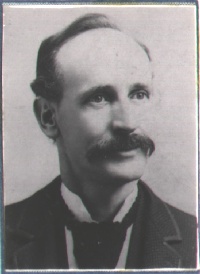
When we discuss the Sabbath in lessons, we can either focus on the things that we should not do to keep the day holy or we can focus on the things we can and should do. The 16th Gospel Doctrine lesson for the Doctrine and Covenants focuses more on the latter than on the former, discussing attending Sunday meetings and taking the sacrament first before moving on to the concept of a day of rest and keeping the day holy. And I think for most Mormons today the focus is on what we do on the Sabbath—go to Church. Read More
-
•
•
24 responses

As a child in the 80s, I remember often feeling a low-level dread. Not constant, not to the extent that it interfered with enjoying life, but the dread of a Cold War child that, any minute, the happy world I lived in might be destroyed in a hail of nuclear fire.[fn1] It didn’t have anything to do with my parents, who didn’t spend any significant amount of time talking about the risk of all-out war. And I don’t recall talking about it at school or at church. But it kind of underlay the culture, emerging not infrequently from the 6:00… Read More
-
•
•
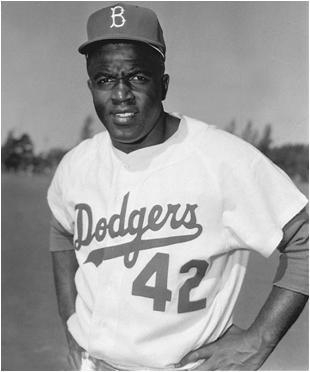
After I returned home from my mission I attended a single’s ward in suburban Washington D.C. in which we had an unusual sacrament meeting one Sunday. One after another ward members came to the podium and delivered the words of the children’s song “I am a Child of God,” each in a different language, a language they knew personally. The effect was surprising; all of us were unified—no one was left out from being a child of God, regardless of race, creed, sex or language. My family experienced a similar surprise several years ago when we arrived at Yankee stadium… Read More
-
•
•
2 responses
Character not only matters, Lorenzo Snow seems to indicate in the material included in lesson 8 of the Lorenzo Snow manual, it is how we are judged, how the Lord “knows our heart.” This prioritizes, of course, character development, which is, in the end, the focus of this lesson. While I don’t have a Mormon poem that discusses character development itself, I have found several that do discuss what character traits are important, including this one. Read More
-
•
•
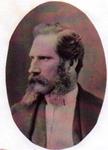
I had a hard time finding a poem that fits with this week’s Gospel Doctrine lesson on spiritual gifts. There just aren’t many that even mention spiritual gifts, and most that do seem to be predominantly about another subject. But I was finally able to find one that focuses on the gift of healing, one of the gifts most emphasized in the LDS Church today. There are many others, of course, and the current tendency seems to be to classify things as spiritual gifts that are part of the normal process of learning and living the gospel—things like teaching, testifying… Read More
-
•
•
8 responses

Elder Ballard started out his recent Conference talk “This Is My Work and My Glory” with this description and commentary on the wonder of the night sky: A few weeks ago, on a cold, dark winter’s night, my wife, Barbara, and I looked in awe up at the sky. The millions of stars seemed exceptionally bright and beautiful. I then turned to the Pearl of Great Price and read again with wonder what the Lord God said to Moses: “And worlds without number have I created; and I also created them for mine own purpose; and by the Son I… Read More
-
•
•
13 responses
President Uchtdorf is conducting this final session of Conference, with music by the Tabernacle Choir. Invocation by another female, Sister Stephens — they seem to be everywhere this Conference! Benediction by a male Seventy. Direct quotes of a speaker are in quotation marks, otherwise the text is my summary of their remarks. Read More
-
•
•
6 responses
President Henry B. Eyring is conducting this session of General Conference. Choir — Go Forth in Faith Conducting — President Henry B. Eyring Choir — Let Zion in Her Beauty Rise Invocation — Elder Steven E. Snow President Dieter F. Uchtdorf — “The Hope of God’s Light” It is part of our condition as mortal beings to sometimes feel as though we are surrounded by darkness. …But even though we may feel lost in the midst of our current circumstances, God promises the hope of His light–He promises to illuminate the way before us and show us the way out… Read More
-
•
•
11 responses
President Uchtdorf conducted the priesthood session, which included a number of strong and inspiring talks. Choir — Arise, Oh God, and Shine Invocation — Elder Ronald W. Rasband Choir — Nearer My God to Me Elder Robert D. Hales — “Stand Strong in Holy Places” Brethren, if we are faithful in the priesthood, this armor will be given to us as a gift from God. We need this armor! If you judge your actions and the standards of the Church on the basis of where the world is and where it’s going, you will find that you are not where… Read More
-
•
•
13 responses
President Eyring conducted the afternoon session. President Uchtdorf read a long list of sustainings and releases, notably releasing President Dalton of the Young Women and calling a new President (Bonnie Lee Green Oscarson) and counselors. The annual audit report and statistical report were read: there are now 3005 stakes and 347 missions. In what follows, direct quotations of a speaker are given in quotation marks; quoted scriptures cited where possible; and other text represents my own summary of the speakers remarks. I will try posting updates after each speaker this session. Read More
-
•
•
8 responses
President Uchtdorf conducted this opening session. Opening prayer by a (male) Seventy and music by the Mormon Tabernacle Choir. Direct quotations of a speaker (based on my real-time listening) are given in quotation marks; other text represents my own summary of their remarks. Read More
-
•
•
6 responses
This is the second post (see first post) discussing ideas presented in the recently published memoir of retired LDS sociologist Armand Mauss, Shifting Borders and a Tattered Passport: Intellectual Journeys of a Mormon Academic (Univ. of Utah Press, 2012; publisher’s page). After taking five years away from his graduate work to serve as a counselor in a bishopric, Mauss returned to his studies in 1962 at UC Berkeley, where he quickly encountered a serious challenge to his faith. Read More
-
•
•
49 responses
In a recent news article discussing the Ordain Women community and its upcoming inaugural meeting, LDS church spokeswoman Jessica Moody stated that the male-only priesthood “was established by Jesus Christ himself and is not a decision to be made by those on Earth.” Of course, there may be a few questions about whether this statement is descriptively accurate, given those pesky Phoebe and Priscilla and Junia verses and whatnot. But let’s set those issues aside for a moment. Because theologically, it does make sense that we might want to follow Jesus’s example here. And factually, a few quirky anomalies aside,… Read More
-
•
•
This April we begin the month looking forward to what comes from 12 men and a few more. We will watch what they do and say, perhaps learning some lessons from them. We may disagree and perhaps even be disappointed in what they do. But we will watch, and what we see will inform how we see the next six months. One of these men has already made a strong statement this week, raising our expectations for this year. Will our expectations be met? Read More
-
•
•
One response
In Mormonism we talk a lot about concepts like “enduring to the end” and “faithfulness in times of trial” (the subject of the current lesson in the Lorenzo Snow manual). We teach that trials are a necessary part of life, burdens that we need to pass through in order to learn the lessons of life and build our abilities for the next life. Children face these same lessons as they become independent of their mothers (and fathers), as Mormon poet Coral J. Black explores in the following poem. Read More
-
•
•
One response
What does it mean to consecrate? What are the kinds of things we must do, the attitudes and priorities we must have when we consecrate all that we have and that we are to the Lord? Doctrine and Covenants Gospel Doctrine lesson 14 explores the Law of Consecration, focusing on these attitudes and priorities and little on the practical effects of those attitudes. I believe that when we actually do live the law of consecration, our actions will be more like the ideal described by Eliza R. Snow in her poetic description of the Relief Society: Read More
-
•
•
22 responses
What do you do to commemorate Christ’s resurrection? Modern culture, at least publicly, outside of Christian churches, doesn’t celebrate Easter as much as many other holidays or commemorations. Christmas, Halloween, Independence Day, Memorial Day and Valentines Day all seem to get more attention. I suspect that this is, at least in part, because they have become more commercial, and in doing so have captured the imagination of the public. And to a degree this happens for Easter also, but for some reason the commercialization is not nearly as strong as Christmas, for example. The Easter Bunny just isn’t as popular… Read More
-
•
•
2 responses
Lesson 13 of this year’s Gospel Doctrine manual reviews some of the most important contributions of Joseph Smith—the scriptures he brought forth. Through Joseph Smith we have not only the Book of Mormon, but also the Doctrine and Covenants, Pearl of Great Price and the inspired version of the Bible. In addition, Joseph Smith provided important clarifications of doctrine upon which much of Mormon doctrine is founded. The following poem addresses Smith’s inspired writings. Read More
-
•
•
95 responses
. . . should be eligible for Priesthood ordination. So do these other lovely people. Please check out some of the profiles, if it’s a topic that interests you, or visit our facebook page for more discussion. I know it’s not everyone’s cup of tea, and I know that reasonable people can disagree here. But I do think that one can very much believe in female ordination within the Mormon framework. It fits well into the narrative of ever-expanding Priesthood eligibility in LDS theology, I think (ever-expanding circles from Levites to Israelites to Gentiles, and finally to all men in… Read More
-
•
•
5 responses
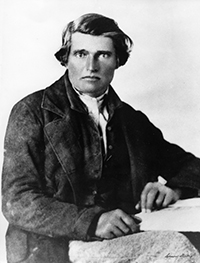
One of the most modified Mormon doctrines is the doctrine of the gathering—the idea that Church members should move to a central gathering spot to build up Zion in this dispensation. D&C lesson 12 teaches about this doctrine, the subject of many of the sections in the Doctrine and Covenants. Under this doctrine, Mormons have “gathered” to Kirtland, Ohio, Independence, Missouri and other areas in that state, Nauvoo, Illinois and Salt Lake City, Utah and perhaps other places. Other Mormon sects have likewise sought to gather members to central locations. Hundreds of thousands of converts have left their homes to… Read More
-
•
•
2 responses
One of the early focuses of the Doctrine and Covenants is missionary work. Repeatedly the Lord advises the Church in revelation that “the field is white, already to harvest,” and encourages missionaries to labor with “all your heart, might, mind and strength.” Church members are urged to prepare and to “open your mouths” to warn and convert neighbors. And these themes did appear in early Mormon poetry, including this work, which was written by the first Mormon missionary to die in the field outside of the United States, Lorenzo D. Barnes. Read More
-
•
•
One response
Chapter 6 of the Lorenzo Snow manual discusses President Snow’s teachings about perfection—his encouragement of gradual improvement, diligence and patience and the role of repentance in obtaining perfection. One of the concepts that stands out to me is the requirement for patience and endurance in reaching perfection. These themes can also be found in his sister’s poem that follows. Read More
-
•
•
133 responses
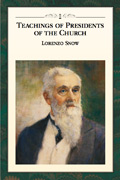
In 1840, almost nine years before being called as an LDS apostle, while he was listening to a friend read from the scriptures, Lorenzo Snow experienced a sudden enlightenment that he apparently regarded as a revelation from God. He summarized his enlightenment in this well known verse (which I’ll call the Couplet): As man now is, God once was: As God now is, man may be. Neither the Couplet, nor any alternative account of Lorenzo Snow’s pre-apostolic claimed revelation, has been canonized. It is not scripture. The first part of the Couplet in particular encourages the belief by rank and… Read More
-
•
•
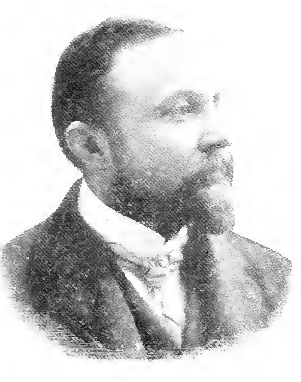
Lorenzo Snow’s teachings on man’s destiny and on the nature of God have often been met with both criticism from non-Mormons and wonder from members. His couplet about the past of God and the future of man (mentioned in the lesson), encapsulates an important part of Mormon theology, something that has been even encapsulated in our poetry, such as in his sister Eliza’s well-known poem, today sung as the hymn O My Father. But that hymn is not the only poetical expression of these teachings. Read More
-
•
•
Lesson 10 of the Gospel Doctrine manual for the Doctrine and Covenants is one of those lessons that is a bit hard to characterize. It covers D&C 25, addressing subjects like “husbands and wives should support and comfort each other,” “meekness and pride,” and “rejoice and be of good cheer.” I found it hard to come up with a single subject that covers all of this, and the best I could do is a poem about friendship. Read More
-
•
•
6 responses
Last month, Jacob over at BCC started an interesting series on the philosophy of religion, which I hope he continues at some point. Not being quite ready to spring $120 for a copy of the recommended book, I tracked down a library copy of a shorter and very readable introductory text, William L. Rowe’s Philosophy of Religion: An Introduction (Wadsworth, 2001, 3rd ed.). What I found most interesting in the book was the contrast between knowledge and faith. The discussion seems particularly relevant given how frequently the distinction between knowledge and faith is muddled or simply ignored in LDS discourse. Read More
-
•
•
6 responses
When I read Stephen Peck’s groundbreaking novella A Short Stay in Hell the idea that struck me more than any other was how little we know about the idea of eternity–and how unfamiliar we are with how long eternity is. We simply have no way of comprehending the time involved. We live in a world where we have limited time and must decide how we use the time we have. Read More

